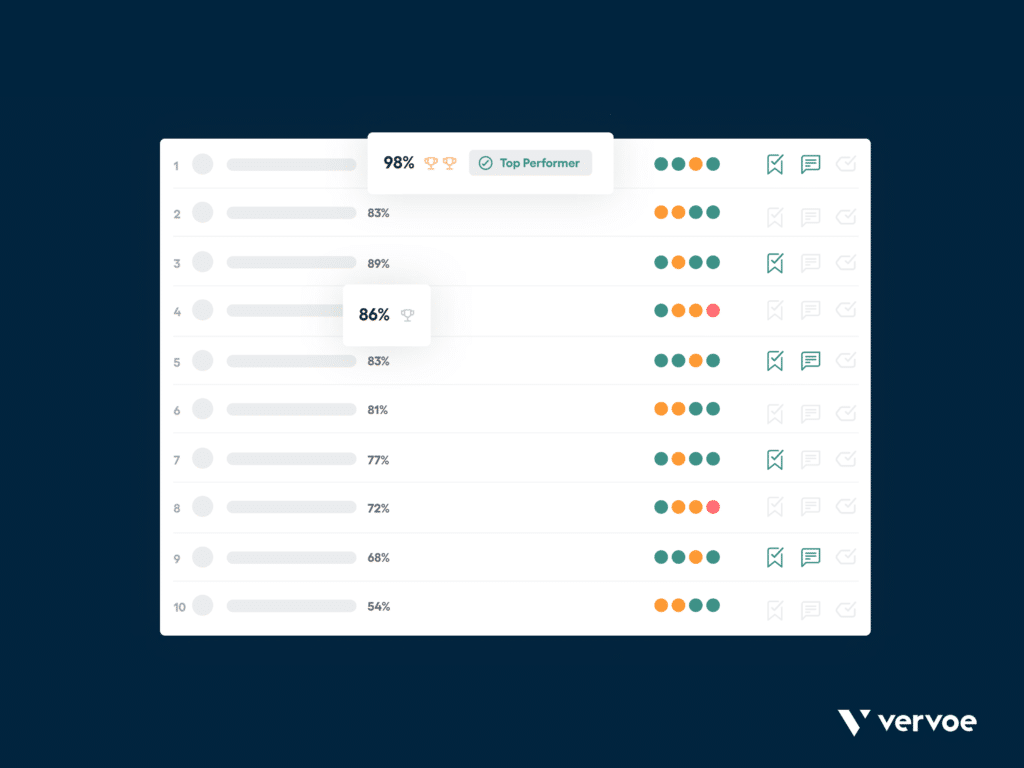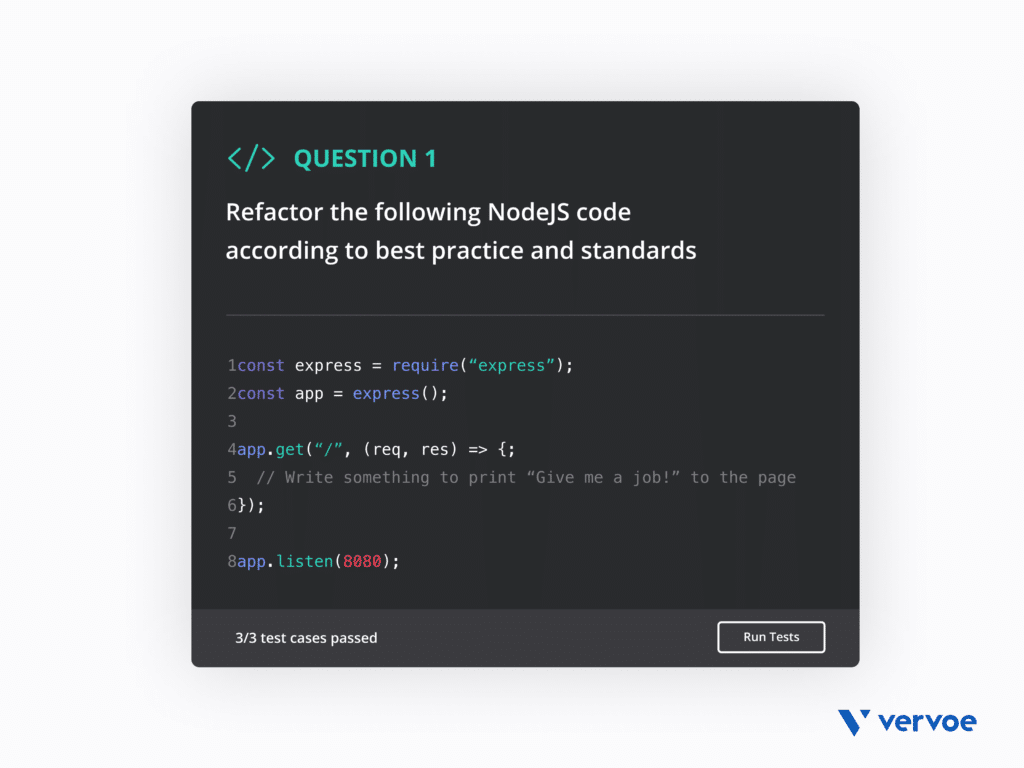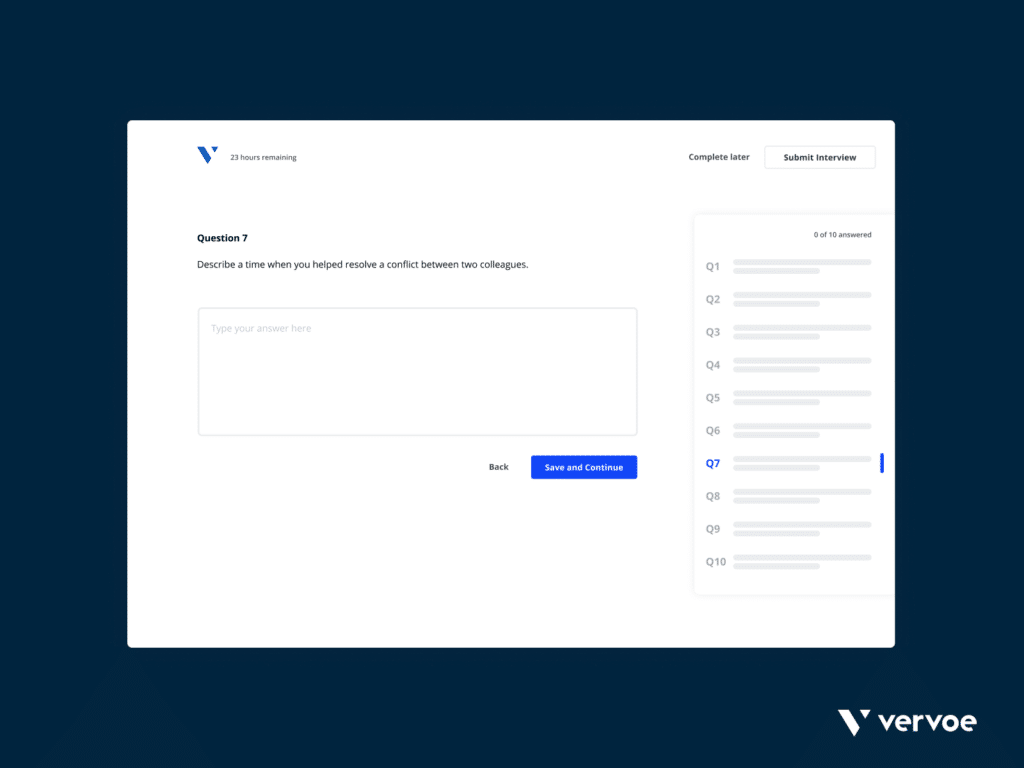There’s nothing quite like the sinking feeling you experience when you realize a new hire isn’t going to work out.
After weeks of giving them the benefit of the doubt, you’ve stopped kidding yourself. The new hire simply doesn’t have the skillset they claimed in their résumé, or they are struggling to fit in with your organization’s culture.
With an inward groan, you ask yourself:
- How much time have we wasted by hiring this person?
- How much money have we spent hiring and paying this person?
- How long will it take to hire a replacement?
- Why did we believe everything they told us in their résumé and during the job interview?
- What if it happens again?
- What is my boss going to say?
Here’s the thing. Your boss has every right to be frustrated about the poor hiring decision because hiring without using pre-employment assessments is indefensible. It’s a gamble with company money that could have been avoided with an easy addition to the hiring process.
What is pre-employment testing?
Pre-employment testing is a way to see how well candidates do the job before they get the job; a bit like a job audition. Testing reduces the risk of a bad hiring decision and is significantly cheaper and faster than testing candidates on the job with a probation period.
Depending on the type of assessment, pre-employment testing can measure job-critical skills like selling or coding, soft skills such as communication, the candidate’s potential to fit with the company culture, their emotional intelligence, integrity, and more.
Pre-employment testing is more effective than résumé screening
Pre-employment testing is a highly effective alternative to screening by résumé. Testing provides employers with real, quantified data to assist hiring decisions and eliminate the risk of hirers being fooled by mistruths or exaggeration.
When is the best time to test candidates?
Unless you regard résumé screening and interviewing as “testing” (hint: it isn’t), then most candidates are not actually assessed until they have accepted the job, signed the contract, and have started their probation period … on the payroll.
Testing on-the-job or in the probationary period
Depending on the length of the recruitment cycle, onboarding process, and settling-in period, it may be weeks or even months before a new starter can be properly assessed on their on-the-job performance. At this point, hiring managers finally have the chance to see if the new hire really can perform as well as they promised. But it’s too late, says Dan Ridd, Vice President of Global Sales.
“Time has already been wasted, and money has already been spent. Probation periods have a useful function as a safety mechanism in case the employer or employee change their mind, but it should not be the first time a candidate proves their abilities.”
Dan Ridd, Vice President of Global Sales at Vervoe
Testing during the recruitment process
Pre-employment tests can take place at any point in the recruitment process. So it really depends on your organization’s needs and circumstances.
For example, if you are in a high-volume hiring situation for an entry-level role, using pre-employment testing at the point of application can yield faster and more accurate results than traditional résumé screening. Instead of ending up with a shortlist of the ten most impressive résumés, you will have a shortlist of the ten top-scoring candidates who can be moved to the next stage.
For senior or hard-to-fill roles, it may make more sense to speak to the candidate first, then invite them to complete a skills assessment later in the process to validate their skills. This is because these types of candidates need to be courted.
Pre-employment testing as a screening tool
Is pre-employment testing a practical method of screening candidates in high-volume hiring? Ten years ago, the answer would have been “no”. Manual assessment of dozens or hundreds of tests is time-consuming and expensive.
But today, technology has made it possible to assess candidates’ answers quickly and at scale. With the right testing solution, it makes little difference if you have 50 or 500 candidates: the automated process will be just as fast.
Automated résumé screening is flawed
Résumé screening has also been automated, with several providers offering smart résumé-scanning software that usually works by searching for pre-set keywords. However, automated résumé screening can be riddled with risks, including:
- Résumé screening software being unable to read résumés with unusual formatting.
- Excellent candidates may be screened out incorrectly or unfairly.
- Résumé screening software does not know when it is being lied to.
- Algorithms look for academic credentials and work experience, neither of which necessarily predict success.
Screening out versus screening in
Traditional screening processes create a shortlist by eliminating or screening out candidates as efficiently as possible.
This approach is notorious for screening out hidden gems. For example, a self-taught product designer may have the best skills for the job, but will be eliminated from consideration by résumé screening software that is programmed to only progress candidates with a certain level of tertiary education.
“Pre-employment tests offer an alternative where no candidates are eliminated from consideration”, says Stacie Garland, Industrial and Organizational Psychology Expert.
“Instead, every candidate can be assessed and ranked according to their performance on set tasks or answers to questions, depending on the type of test.”
Stacie Garland, Industrial and Organizational Psychology Expert at Vervoe

This approach “screens in” candidates who may have excellent skills but are hampered by a résumé that would never have made it past a robot or human reviewer.
Types of pre-employment testing
There are several types of pre-employment screening methods ranging from skills assessments to personality tests. While approaches to pre-employment screening can vary significantly, the shared aim is always to predict on-the-job success.
What are the common types of pre-employment tests?
- Skills assessments
- Job knowledge tests
- Personality tests
- Integrity tests
- Emotional intelligence tests
- Cognitive ability tests
- Physical ability tests
1. Skills Assessments
Skills assessments or skills tests are designed to see how candidates perform tasks specific to your business before they get the job. Hiring success is predicted by testing a combination of:
- Technical skills: such as coding, accounting, or content writing.
- Soft skills: such as critical thinking, teamwork, leadership, and communication.
Companies are increasingly recognizing that even the world’s best coder will not make a good hire if they cannot work well with others, lack empathy, or are otherwise deficient in soft skills.
Skills assessments should be tailored and immersive
Rather than creating a standard skills test for every new hire in your organization, skills assessments should be tailored to the specific responsibilities of an open position.
Well-built tests ask candidates a variety of questions in different formats (open-ended, multiple choice) and include immersive experiences such as coding challenges.

2. Job Knowledge Tests
Job knowledge tests are used to measure a candidate’s theoretical knowledge in their field.
How do job knowledge tests differ from skills assessments? While job knowledge tests are about theory and general knowledge, skills assessments are about applying that knowledge.
It’s the difference between theory and practice, says Regan McGregor, Senior Growth Marketing Manager.
“For example, in a job knowledge test, a social media manager may be asked to describe the elements that make up a great social media post: picking the right platform, knowing your audience, using visuals, optimal word count, and so on. In a skills assessment, the candidate would be asked to actually write the social media post.”
Regan McGregor, Senior Growth Marketing Manager at Vervoe
Job knowledge tests can be useful for measuring candidate knowledge and experience in their chosen field, but without the practical element, they are not as reliable predictors of on-the-job performance.
In other words, the person who knows the most about the job might not necessarily be the best at actually doing the job.
3. Personality Tests
Personality tests are not designed to predict job performance, but they are very helpful in determining if someone will fit in with the team or how they are likely to behave in a specific scenario. Personality tests measure attributes including flexibility, work ethic, ambition, and openness to criticism.
Some companies use personality tests to weed out candidates with negative traits such as narcissism or inflexibility. Other employers may know what sort of personalities they want (such as more extroverts and fewer introverts) and use these tests as a way to identify those candidates. Personality tests can also give a new hire’s manager some helpful knowledge on which to base their management style.
Candidates could be asked questions such as:
- Do you prefer working on your own or in a team? Why?
- How comfortable are you in busy social situations such as a noisy party?
- How would you react if a client changed the brief 24 hours before the deadline?
- If you could change one thing about your personality, what would it be?
Note that personality tests can share many of the same question types as the soft-skills part of a skills assessment.
Problems with personality tests
Personality tests can be entertaining and fun, but be warned that they often have little scientific basis and many have been discredited by psychologists. The most famous personality test of all – the Myers-Briggs Type Indicator (MBTI) – has been shown to offer about as much validity as a horoscope, yet continues to be used by millions around the world. Critics have also warned that applying personality labels gives people dangerous limiting beliefs.
Despite these concerns, personality testing is a $2 billion industry with dozens of test methodologies on the market.
4. Integrity Tests
Integrity tests can be conducted for any role, but are particularly useful when hiring for a position of trust. People who handle money, work with sensitive data, health workers, and people who will have opportunities to commit fraud are often asked to undertake an integrity test.
There are two types of integrity test questions:
- Overt integrity questions: Would you report a colleague who stole food from the workplace pantry due to financial struggles?
- Covert integrity questions: Would you agree that most employers take advantage of their employees?
Integrity tests can help reduce the likelihood of hiring the “wrong” sort of person for a position of trust, but they are not a fool-proof way to protect companies from fraud, theft, and other dangerous behavior. Integrity testing should be used in combination with other screening procedures such as a police (criminal record) check, and workplace policies and procedures including audits.

5. Emotional Intelligence Tests
Emotional Intelligence (EQ) testing is a pre-employment screening methodology that measures a candidate’s awareness and management of their emotions and the emotions of others.
By testing self-awareness and the ability to empathize with others, employers can gauge how adaptive a candidate is likely to be in response to other people’s emotions. These are vital skills for working within a team, as well as when interacting with customers in emotional situations such as a negotiation.
Emotional intelligence is usually measured by presenting candidates with hypothetical scenarios or asking them about past experiences, such as:
- How do you calm yourself when you feel upset?
- Describe a time when you had to be confrontational to achieve a result.
- Describe a time when you helped resolve a conflict between two colleagues.
- Describe a time when you had to work on a project with someone you did not like.

6. Cognitive Ability Tests
Workplaces generally don’t use IQ tests to measure candidates’ intelligence. Instead, they use cognitive ability or cognitive aptitude tests to assess mental ability: the candidates’ potential for problem-solving and acquiring new knowledge.
This is done through a series of different assessments such as spatial awareness, numerical, verbal, and abstract reasoning, problem-solving, mathematical ability, and memory tests. Candidates can expect to complete challenges that test their vocabulary, rearrange shapes, complete number sequences, and more.
But does assessing someone’s mental ability help predict job performance? It may help you hire the cleverest people, but without directly assessing job-related tasks, it is very hard to prove a link between cognitive ability and how good a candidate will be at the job you are hiring for.
7. Physical Ability Tests
Physical ability tests are used for physically demanding roles that require traits such as strength, muscular and cardiovascular endurance, and balance. Armed forces around the world, for example, screen would-be recruits with a physical fitness assessment.
Organizations should use a great deal of caution (and legal advice) before introducing physical ability tests as they risk running afoul of anti-discrimination laws.

How to choose the right pre-employment screening method
Choose the method of pre-employment screening by reviewing your hiring and capability needs.
If your organization has found that new hires often do not possess the right skills, then a skills assessment should be employed. If, however, your organization is having difficulty building a positive team culture, consider employing personality tests or emotional intelligence tests to help determine cultural fit.
Pre-employment screening methods can be used singly or combined; for example, you may choose to conduct a skills assessment along with an integrity test. Many providers include several types of testing in their service offerings.
What about psychometric testing?
Psychometric testing is a catch-all phrase for several types of pre-employment testing. A psychometric test may include a skills assessment, cognitive test, EQ test, and a personality test. While psychometric testing provides useful baseline data that can help hiring decisions, results can be misinterpreted or read out of context. At Vervoe, we recommend a more targeted approach to test for exactly what you need.
How to use pre-employment assessment test results
What should you do with the results of a pre-employment assessment?
Save time in the interview
Pre-employment assessments are a time-saver. Armed with test results, there is no need to spend precious interview time trying to uncover and assess whether or not a candidate has the skills or attributes you require. Instead, focus on the areas you have not tested for.
Highlight areas that need work
No candidate is perfect. There will always be some areas that need more work than others. Use the interview to hone in on these skills.
Create a training plan
Pre-employment test results can be used to inform a targeted training plan for the successful candidate. Remember to test again after upskilling the employee to gauge the effectiveness of the training program.
Five tips for effective pre-employment testing
Here are five ways to optimize the effectiveness of your pre-employment testing program:
- Test as early in the recruitment process as possible to save time and money.
- Determine what you need to test for: skills, culture, emotional intelligence.
- Combine different types of pre-employment testing if necessary.
- Tailor tests to the specific role wherever possible.
- Focus on user experience: don’t make the test too long or difficult to navigate.
No matter what skills, attributes, or personality traits you are hiring for, pre-employment testing will optimize your screening processes, save time and money, and ultimately lead to better hiring outcomes.
Ready to make better hiring decisions? Activate your free trial with Vervoe and start pre-employment screening for the skills that matter to your business.




















